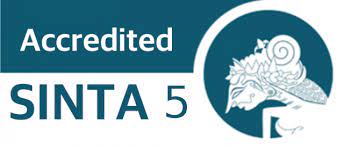Desain Learning Management System dan Konten Berbasis Kecerdasan Buatan Generatif untuk Edukasi Perubahan Iklim bagi Perempuan Pegiat Lingkungan
DOI:
https://doi.org/10.31294/abditeknika.v5i1.7630Keywords:
Edukasi Perubahan Iklim, Komunitas Pegiat Lingkungan, Kecerdasan Buatan GeneratifAbstract
Dalam menghadapi krisis iklim yang semakin intens di Indonesia, edukasi perubahan iklim menjadi penting. Komunitas pegiat lingkungan, Peri Bumi, telah aktif dalam upaya edukasi dan inisiasi lingkungan. Namun, komunitas ini menghadapi tantangan dalam pengelolaan pembelajaran yang efektif dan produksi konten edukatif. Berdasarkan kebutuhan tersebut maka tim dosen universitas Bina Nusantara menginisiasi program pengabdian kepada masyarakat dengan mengembangkan Learning Management System (LMS) berbasis kecerdasan buatan generatif (Generative AI) serta memberikan pelatihan pembuatan konten digital. Hasil evaluasi menunjukkan bahwa LMS Peri Bumi telah meningkatkan aksesibilitas pembelajaran bagi 121 pengguna aktif dalam enam bulan pertama. Selain itu, pelatihan yang dilakukan menghasilkan peningkatan keterampilan anggota komunitas secara signifikan dengan total N-Gain sebesar 85,2%. Secara keseluruhan, program ini berkontribusi dalam menciptakan model edukasi berbasis komunitas yang berkelanjutan dan dapat direplikasi ke komunitas pegiat lingkungan lainnya.
In response to the escalating climate crisis in Indonesia, climate change education has become increasingly crucial. The environmental advocacy community Peri Bumi has been actively engaged in environmental education and initiatives. However, these communities face challenges in managing effective learning and producing educational content. Based on these needs, the Bina Nusantara University lecturer team initiated a community service program by developing a Learning Management System (LMS) based on generative artificial intelligence (generative AI) and providing digital content creation training. The results of the evaluation show that LMS Peri Bumi has improved learning accessibility for 121 active users in the first six months. In addition, the training conducted resulted in a significant improvement in the skills of community members with an N-Gain of 85.2%. Overall, the program contributes to creating a community-based education model that is sustainable and can be replicated to other communities of environmentalists.
References
Administrasi Walikota Jakarta Selatan (2022). Rencana Strategis Kota Administrasi Jakarta Selatan Tahun 2023-2026. https://selatan.jakarta.go.id/modul/ppid/upload/informasi_publik/20230920160331_JS_RENSTRA_2023-2026__agustus_2022_.pdf
Agripina Shafa, A. (2024). Implementasi Learning Management System dalam Meningkatkan Efektivitas Pembelajaran. Jurnal Teknologi Pendidikan, 1(4), 8. https://doi.org/10.47134/jtp.v1i4.658
Asian Development Bank. (2021). Indonesia Climate Risk Country Profile. www.worldbank.org
Barokati, N., & Annas, F. (2013). Pengembangan Pembelajaran Berbasis Blended Learning pada Mata Kuliah Pemrograman Komputer (Studi Kasus: UNISDA Lamongan). Sisfo, 4(5), 352–359. https://doi.org/10.24089/j.sisfo.2013.09.006
Branch, R. M. (2009). Instructional Design: The ADDIE Approach. Springer US. https://doi.org/10.1007/978-0-387-09506-6
Deshwal, P., Trivedi, A., & Himanshi, H. L. N. (2017). Online Learning Experience Scale Validation and Its Impact on Learners’ Satisfaction. Procedia Computer Science, 112, 2455–2462. https://doi.org/10.1016/j.procs.2017.08.178
Gusti, I., Wiragunawan, N., Negeri, S., & Selatan, K. (2022). Pemanfaatan Learning Management System (Lms) Dalam Pengelolaan Pembelajaran Daring Pada Satuan Pendidikan. Edutech: Jurnal Inovasi Pendidikan Berbantuan Teknologi, 2(1).
Hussein, Z. (2016). Leading to Intention: The Role of Attitude in Relation to Technology Acceptance Model in E-Learning. Procedia Computer Science, 105, 159–164. https://doi.org/10.1016/j.procs.2017.01.196
Memon, F. S. (2023). Importance of gender inclusiveness in sustainable climate change education. In Climate Change Education for Sustainable Development (pp. 63–91). IGI Global. https://doi.org/10.4018/978-1-6684-9099-0.ch004
Mudjisusatyo, Y., Darwin, D., & Kisno, K. (2024). The use ADDIE model to improve the competence of the higher education task force in obtaining competitive funding for the independent campus program. Journal of Applied Research in Higher Education, ahead-of-print(ahead-of-print). https://doi.org/10.1108/JARHE-12-2023-0580
Priadi, Y., Yosua Arda Kurnia, & Benedictus Pascal Sanjaya. (2024). Need Analysis of Gamification-Based E-Learning Development with ADDIE Method for Student Learning Using Moodle Platform. Jurnal E-Komtek (Elektro-Komputer-Teknik), 8(2), 360–372. https://doi.org/10.37339/e-komtek.v8i2.2144
Rekha, A. P. (2024). The Learning Management System (Lms) And Student Leaning Effectiveness: A Systematic Literature Review. International Journal of Research Publication and Reviews, 5(6), 1857–1861. https://doi.org/10.55248/gengpi.5.0624.1460
Sanjigadu, S., & and Mudaly, R. (2023). Re-centring and recovering knowledge about climate-friendly agriculture: Learning from a woman African indigenous knowledge holder. Agenda, 37(3), 62–75. https://doi.org/10.1080/10130950.2023.2251563
Thakre, N. V. (2024). Learning System Application. Gurukul International Multidisciplinary Research Journal. https://doi.org/10.69758/gimrj2406i8v12p120
Thoyre, A. (2020). Home climate change mitigation practices as gendered labor. Women’s Studies International Forum, 78, 102314. https://doi.org/https://doi.org/10.1016/j.wsif.2019.102314
Downloads
Published
How to Cite
Issue
Section
License
Copyright (c) 2025 Virienia Puspita, Astari Retnowardhani, Fitria Andayani

This work is licensed under a Creative Commons Attribution-ShareAlike 4.0 International License.













